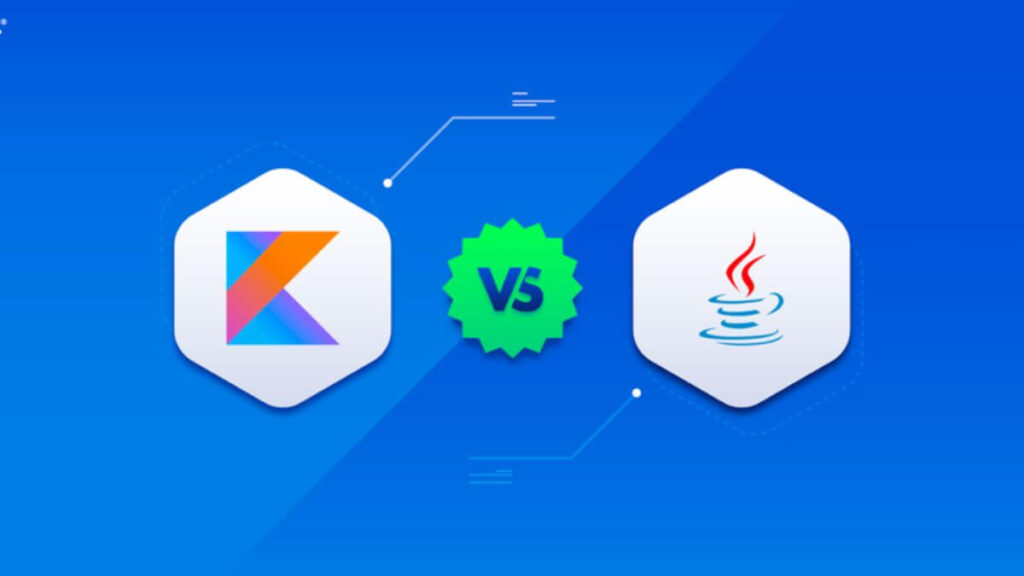In Android development, a big question arises: should developers use Java or Kotlin? Java is a long-time favorite, while Kotlin is gaining popularity. Both languages are supported by Google and have their unique strengths and weaknesses. This guide will explore both options to help you choose the best fit for your Android project.
Java: The Long-standing Leader
Java has been essential for Android development since its early days. Launched in 1995, Java is an object-oriented language with a large developer community and extensive libraries.
Advantages of Java
- Mature Ecosystem: Java has been around for many years. It offers a vast range of libraries and tools to simplify tasks.
- Community Support: Java has a large community of developers. This means many tutorials, forums, and resources are available.
- Performance: Java performs well in large applications. It uses garbage collection and just-in-time (JIT) compilation to manage memory.
- Cross-Platform Flexibility: Java is versatile. You can build Android apps, web apps, and even desktop software with it.
Disadvantages of Java
- Verbose Syntax: Java code can be lengthy. Writing in Java often takes more lines of code than in modern languages like Kotlin.
- Null Pointer Exceptions: Java applications often crash from null pointer exceptions. Handling these exceptions is essential but can be tricky.
- Lacks Modern Features: Java misses some modern features like extension functions, lambda expressions, and smart casting.
Also read | Android Tutorial | Expense Manager Android App
Kotlin: The Modern Challenger
Kotlin was created by JetBrains in 2011, gaining Google’s official support in 2017. It was designed to work seamlessly with Java, addressing its limitations and offering a modern programming experience.
Advantages of Kotlin
- Concise Code: Kotlin reduces boilerplate code, making code shorter and easier to maintain.
- Null Safety: Kotlin minimizes common null pointer exceptions. This makes your app more stable and less error-prone.
- Interoperability with Java: You can use Kotlin with Java in the same project. This allows gradual migration without rewriting code.
- Modern Features: Kotlin supports advanced features like data classes, extension functions, and lambda expressions, simplifying development.
Disadvantages of Kotlin
- Learning Curve: For Java developers, learning Kotlin might take time. The syntax and structure can feel different.
- Compilation Speed: Kotlin’s compilation speed can be slower than Java’s, especially for large projects.
- Smaller Community: Kotlin’s community is growing but smaller than Java’s. It may be harder to find resources for complex issues.
Also read | OpenAI launches SearchGPT to ChatGPT
Which Language is Better for Android Development?
Choosing between Java and Kotlin depends on your project needs and skill level.
- Java for Beginners: Java’s large community offers many learning resources. This makes it easier for beginners to find support.
- Kotlin for Experienced Developers: Kotlin suits developers seeking modern features and reduced code. It’s better for creating efficient, modern applications.
Pros and Cons Summary: Android Development
| Feature | Java | Kotlin |
|---|---|---|
| Code Length | Verbose | Concise |
| Community Support | Large | Growing, but smaller |
| Null Safety | Risk of null pointer exceptions | Null-safe features |
| Compilation Speed | Generally faster | Can be slower |
| Modern Features | Lacks modern features | Includes data classes, lambdas, etc. |
| Cross-Platform Flexibility | Strong | Limited to Android |
Conclusion
Both Java and Kotlin are powerful for Android development. Java offers stability and community support, making it ideal for beginners. Kotlin, on the other hand, delivers modern features and concise code, making it perfect for advanced users. Choose the language that best fits your goals and project needs.

